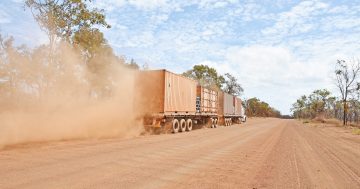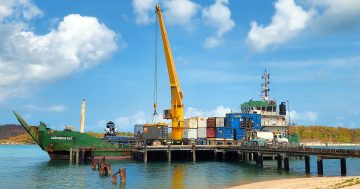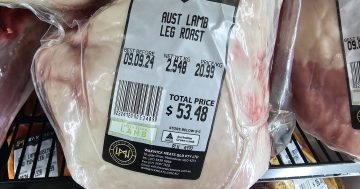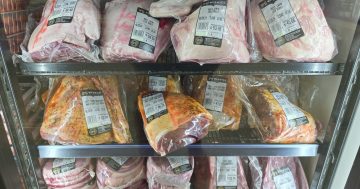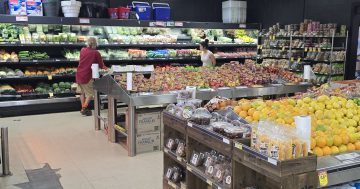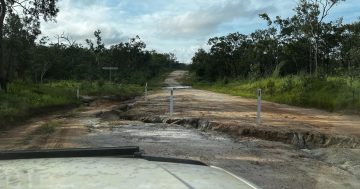
Weipa is being touted as an economic hub for northern Cape York and the Torres Strait, but editor Lyndon Keane says that ambition can’t become a reality while skyrocketing freight costs are leading some business operators to consider shutting up shop. Photo: Cape York Weekly.
If you ask any Cape York or Torres Strait business owner how things are going and they answer honestly, the overwhelming majority are going to tell you it’s never been more difficult to be an entrepreneur in this part of the world. Dozens I’ve spoken to over the past few months even went so far as to admit they had genuine concerns about the viability of their operation, albeit through gritted teeth and with the laid-back stoicism we’ve adopted as our own.
You can’t blame them, because they are copping it from both ends when it comes to the cost of living pressures crippling the most northern part of the state. Not only are they getting slugged with skyrocketing costs at the cash register when they’ve got their remote resident hat on, they’re also feeling the pinch as they attempt to source the materials needed to provide the goods and services they rely on to keep their business afloat.
The Remote Communities Freight Assistance Scheme introduced by the former Miles government is an unworkable train wreck that should be scrapped and taken back to the drawing board, because it will never provide tangible cost of living relief as long as everyday items like fuel, household goods and clothing are not deemed “eligible essential goods” by those in Brisbane creating the policy. Notwithstanding this little political oopsie, one of the most significant concerns for my money is that our business operators are currently getting zero financial help to procure the everyday materials they can’t source locally up here to keep their doors open.
Whether it’s produce for a cafe in the Northern Peninsula Area, spare parts for an automotive retailer in Cooktown, or toilet paper for a caravan park in Weipa, every business owner is getting utterly gouged with freight costs to the extent it would be more financially viable for a lot of them to shut up shop and go and find work somewhere else. But where does that leave our remote communities and their ultimate sustainability? It’s a glum but simple proposition – without a diverse range of businesses supporting the local economy, sporting groups and organisations, we may as well start the countdown to the death of the places we love and call home.
Freight is the biggest financial burden facing most business operators up here because their hands are tied for much of the year when wet season rain renders the road network impassable and forces them to use what is a sea freight monopoly. A monopoly solely owned by Queensland Government Insurance Fund, mind you, but I digress.
Now I’m just a humble newspaper editor, not a fancy, know-it-all politician, but it strikes me that if we had adequate all-weather road infrastructure to allow business operators the option of road transport for a few more months each year, or a dilution of the current sea freight monopoly, freight bills would shrink. The sad thing is that I wouldn’t even have to point this out were we talking about freight costs for businesses in the south-east corner of the state.
The Liberal National Party promised “a fresh start” for the state and a commitment to regional Queenslanders on its way to securing a majority government in October – that includes us all the way up here on Cape York and across the water in the Torres Strait. You don’t get any more regional than us.
It’s now time for Premier David Crisafulli and his team to make good on the campaign slogans by delivering change that effects hip pocket relief not only for Cape York and Torres Strait residents, but also for those brave and ambitious enough to dip their toes into the entrepreneurial waters this far north. How the government handles the remote freight farce will be an unmistakeable litmus test for how much attention we are likely to receive over the coming four years.


